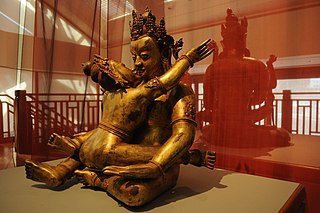 W
WThe views of religions and religious believers range widely, from giving sex and sexuality a rather negative connotation to believing that sex is the highest expression of the divine. Some religions distinguish between sexual activities that are practised for biological reproduction and those practised only for sexual pleasure in evaluating relative morality.
 W
WCatholic theology of sexuality, like Catholic theology in general, is drawn from natural law, canonical scripture, divine revelation, and sacred tradition, as interpreted authoritatively by the magisterium of the Catholic Church. Sexual morality evaluates sexual behavior according to standards laid out by Catholic moral theology, and often provides general principles by which Catholics can evaluate whether specific actions meet these standards.
 W
WIntersex people are born with sex characteristics, such as chromosomes, gonads, or genitals that, according to the UN Office of the High Commissioner for Human Rights, "do not fit typical binary notions of male or female bodies".
 W
WThe Religious Institute, Inc. is a progressive American multi-faith organization dedicated to advocating for sexual health, education, and justice in faith communities and society. It was co-founded in 2001 by Debra Haffner, a Unitarian Universalist minister and sexologist, and Larry Greenfield, an American Baptist minister and theologian.
 W
WSodomy or buggery is generally anal or oral sex between people, or sexual activity between a person and a non-human animal (bestiality), but it may also mean any non-procreative sexual activity. Originally, the term sodomy, which is derived from the story of Sodom and Gomorrah in the Book of Genesis, was commonly restricted to anal sex. Sodomy laws in many countries criminalized the behavior. In the Western world, many of these laws have been overturned or are routinely not enforced.
 W
WTantric sex or sexual yoga refers to a wide range of practices carried on in Hindu and Buddhist tantra to exercise sexuality in a ritualized or yogic context, often associated with antinomian or impure elements, like consumption of alcohol, and offerings of impure substances like meat to fierce deities. In particular, sexual fluids have been viewed as "power substances" and used ritualistically, either externally or internally.
 W
WTaoist sexual practices are the ways Taoists may practice sexual activity. These practices are also known as "joining energy" or "the joining of the essences". Practitioners believe that by performing these sexual arts, one can stay in good health, and attain longevity or spiritual advancement.